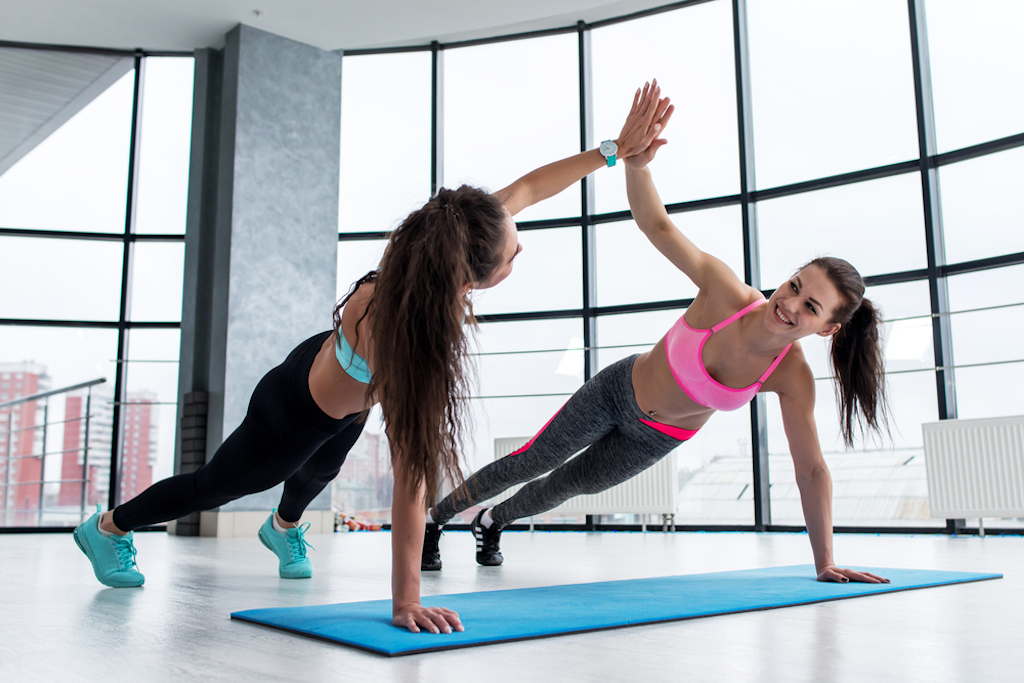When it comes to exercise, the best time of day to workout is the one you can use constantly. We are all different. The “right” time depends on factors such as your preferences, lifestyle and body. While there is no unique answer, morning workouts have some benefits. Let’s look at the potential benefits of morning workout. If you are considering morning workout, take a look at the following benefits. Morning workouts usually mean you are less prone to distractions. When you first wake up, you haven’t started dealing with your daily to-do list. You are also less likely to receive phone calls, messages and emails.
With less distraction, you are more likely to do a good workout. In summer, it is easier to exercise in the morning, because the hottest part of the day is from 10 am to 3 pm. At that time, it is recommended to avoid exercising outdoors. If you prefer outdoor activities, it is best to exercise early in the morning,especially when the temperatures are high.
Healthier food choices
Morning training could be the reason for a healthier rest of the day. In one study, 2,680 students who completed a 15-week exercise program were tested. Three 30-minute cardio training sessions were included each week. Participants were not asked to change their diet. Still, those who adhered to the program chose healthier foods, ate less red meat and fried foods. Although the study did not test the best time of day to exercise, the findings show how exercise can inspire a healthier diet. Morning training can encourage you to make healthier choices during the day. Morning training can be better for the hormonal oscillations of your body. Cortisol is a hormone that keeps you awake. It is often called the stress hormone, but it only causes problems when much or too little of it. Typically, cortisol rises in the morning and falls in the evening. It peaks around 8 p.m. If you have a healthy rhythm, your body could be more ready to exercise at this point.

More energy and better concentration
Regular exercise is great for boosting energy and reducing fatigue. When you exercise, oxygen and nutrients travel to your heart and lungs. This improves your cardiovascular system, endurance and overall endurance of the body. If you exercise early, you may feel more energetic during the day. Physical activity also improves focus and concentration, no matter when you do it. But if you have trouble focusing during the day, a morning workout could be helpful. Morning training improves attention, visual learning and decision making. The days with morning training were associated with better concentration throughout the day. Physical activity is a natural remedy for stress. During exercise, your brain produces more endorphins, neurotransmitters. Morning training is a great way to start the day positively. Early workouts can be good if you want to lose weight. According to a small study, 10 young men exercised in the morning, afternoon and evening during separate sessions. The researchers found that 24-hour fat burning was greatest when they exercised in the morning before breakfast. If you want to lose weight, exercising in the morning can help.
Appetite control and increased activity
In general, exercise helps regulate appetite by reducing ghrelin, the hormone of hunger. It also increases satiety hormones, such as peptide 2 and glycogen-like peptide-1. However, exercising in the morning can control your appetite even more. The 35 women tested walked the lane for 45 minutes in the morning. The researchers then measured the brain waves of the women while looking at photos of the food. A week later, the process was repeated without morning training. The researchers found that women’s brains reacted more strongly to photos of food when they did not exercise in the morning. This suggests that morning workouts can improve the way your brain responds to food. The benefits of early training do not stop in the morning. According to one study, morning exercise is associated with greater movement during the day. After a 45-minute walk in the morning, participants showed an increase in physical activity over the next 24 hours. If you are trying to lead a more active lifestyle, morning exercise can help.
Blood glucose control and pressure management
Physical activity is an important part of managing type 1 diabetes, while for people with T1DM it can be a challenge. Exercise poses a risk of hypoglycemia or low blood glucose. One study found that morning exercise reduced that risk. In the study, 35 adults with T1DM did two separate morning and afternoon training sessions on the bar. Compared to afternoon sessions, morning workouts posed a lower risk of post-activity hypoglycemic events. Researchers think cortisol may be at play. In addition to increased alertness, cortisol also helps control blood sugar. Lower levels, which occur later in the day, could facilitate the development of hypoglycemia. Physical activity is one of the best ways to naturally control hypertension. But according to one small study, exercising in the morning is perhaps the best move. They found that the most favorable changes in blood pressure occurred at 7 o’clock in the morning.
Improved sleep
Early exercise can be just what you need for a good night’s rest. It turned out that those who trained early in the morning slept better. After morning training, they spent more time in deep sleep and experienced fewer night awakenings. They also needed less time to fall asleep. Exercising outside in the morning offers even more sleep-related benefits. Exposure to light early in the day can help increase melatonin levels at night.
Should you eat earlier
Although exercising before breakfast has some benefits, it is important to stabilize blood sugar before exercising. Otherwise, your body will find it difficult to feed itself during exercise. Before your morning workout, eat a light meal rich in carbohydrates and proteins. These nutrients will provide you with energy and prepare your muscles for exercise.
Ideal pre-workout meals include:
- peanut and banana butter
- oatmeal with almond milk and berries
- Greek yogurt with apples
Eat this food an hour before your workout. You may need to experiment to see which time works best for you. After exercising, you will need to replenish your body’s carbohydrate and protein stores. Within 15 minutes of exercise, enjoy a post-workout meal, such as:
- Turkey sandwich with whole grain bread and vegetables
- Smoothie with protein powder and fruit
- Greek yogurt with berries
- Remember to drink water before, during and after training.
It is generally better to exercise in the morning because it is easier to dedicate yourself to it and do it before your daily obligations get in the way. In the evening, many feel tired after work or school. It can be difficult to find motivation or time to exercise. Exercising at night can also increase energy, making it harder to sleep. But that doesn’t mean evening workouts are of no use.
Possible benefits include:
Higher body temperature.
- Your body temperature is highest around 4 to 5 p.m. This is ideal because your muscles are already warmed up.
Increased strength and endurance.
- Compared to the morning, your strength and endurance are higher in the afternoon.
More exercise friends.
- It may be easier to find exercise partners later in the day.
Relieve stress
After a long day, exercising can help you relax and relieve stress. Also, different times of the day may be best for different types of exercise. For example, intense HIIT training may be ideal in the morning, while a relaxing yoga routine may be more practical in the afternoon. You can find both types of training in the application, try it and tell us how morning trainings affect you. It is always best to exercise at the time of day that suits you best. With time and patience, you can start your own morning exercise routine. Here’s how to do it:
Good dream
Good sleep is essential for waking up early. The goal is seven to eight hours of sleep. Gradually adjust your exercise time. Before going to bed, prepare your exercise equipment, gym clothes, sneakers and other exercise supplies. Make breakfast in advance. Prepare an energetic meal before exercising the night before.
Workout with friends
Making plans with a friend is a great way to motivate yourself. Do exercises that you enjoy. Try new exercises and see what you like best. When you really enjoy exercising, it will be easier to get out of bed. If you want to start a fitness routine, consider morning exercises.

Early exercise will help you start the day with more energy, concentration and optimism. In addition, after a morning workout, you are more likely to eat healthy and be active throughout the day. Despite these benefits, there is no “right” time to exercise. The best time is one that you can align with your lifestyle.
